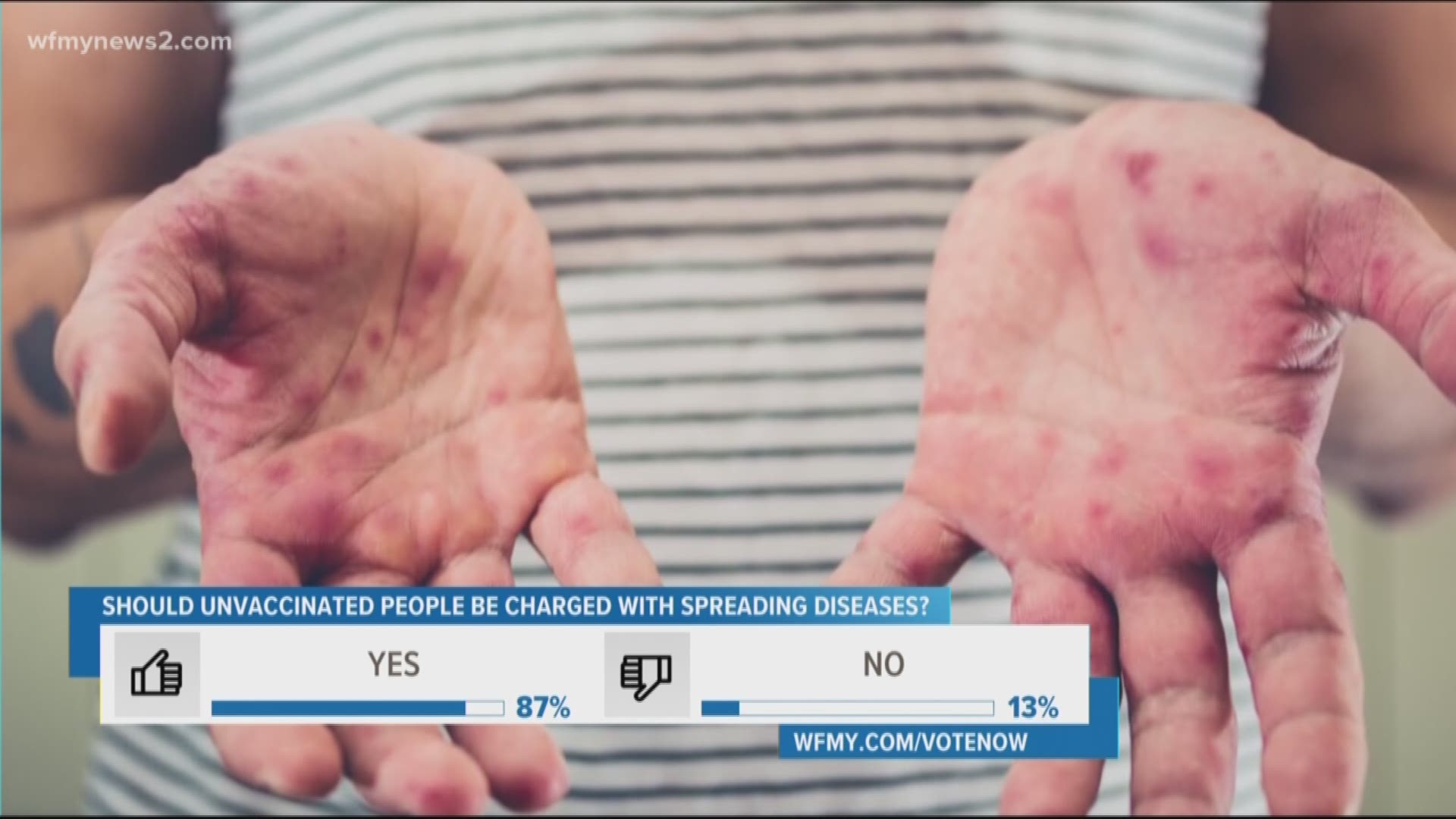ELON, N.C. — Elon University says they are monitoring two other possible cases of mumps.
On Wednesday, the University said they were made aware of an undergraduate student and a graduate faculty member with symptoms consistent with mumps. It comes following the first case of an undergraduate student who does have a confirmed case of mumps.
The University has contacted 814 students and 52 faculty members who could have come in contact with the student. They are also offering a vaccine clinic on Thursday for students and staff to receive an additional dose of the MMR vaccine. However, it will not prevent mumps if a student has already been exposed but will better protect them in the future.
If you are a student at Elon and think you’ve been exposed to mumps or have additional questions contact the Office of the Dean of Students at 336-278-7200. Students who are exhibiting symptoms consistent with mumps should make an appointment with Student Health Services. Appointments can be made by calling 336-278-7230 during operational hours or online any time at https://www.elon.edu/u/health-wellness/health-services/appointments.
TUESDAY UPDATE:
Elon University says an undergraduate student has a confirmed case of mumps.
The university says Student Health Services identified the case and notified the health department. They are not aware of any additional cases at this time.
The health department says the student is no longer contagious.
Mumps diagnoses have popped up recently on other college campuses, and Elon says it is working with local and state health officials to make sure other cases are prevented.
More information:
What causes mumps?
Mumps is a virus that is spread by coughing and sneezing, or with direct contact with the saliva of the infected person. The virus can grow in the nose, throat and lymph nodes.
What are the symptoms?
Fever, headache, muscle aches, tiredness and loss of appetite. Swelling in the cheeks where the saliva glands are located, is also possible.
How is it prevented?
Cover your mouth and nose when you sneeze or cough. Don't share water bottles or objects that may have saliva on them, and wash your hands often.

